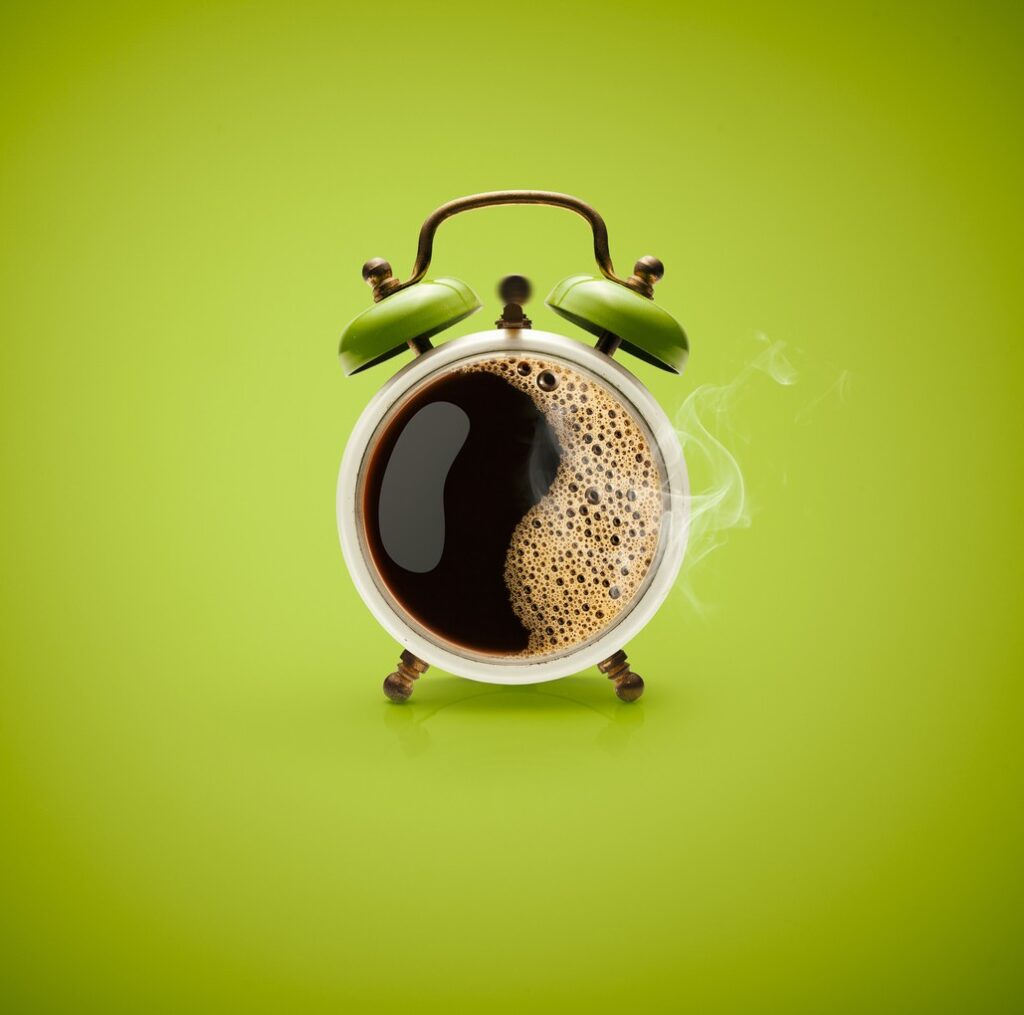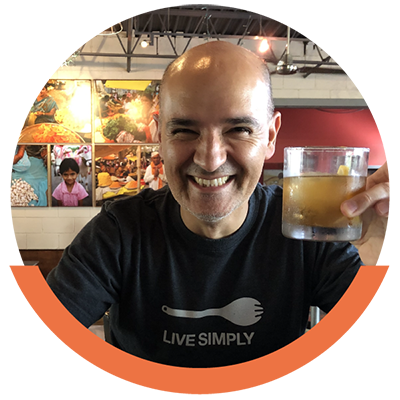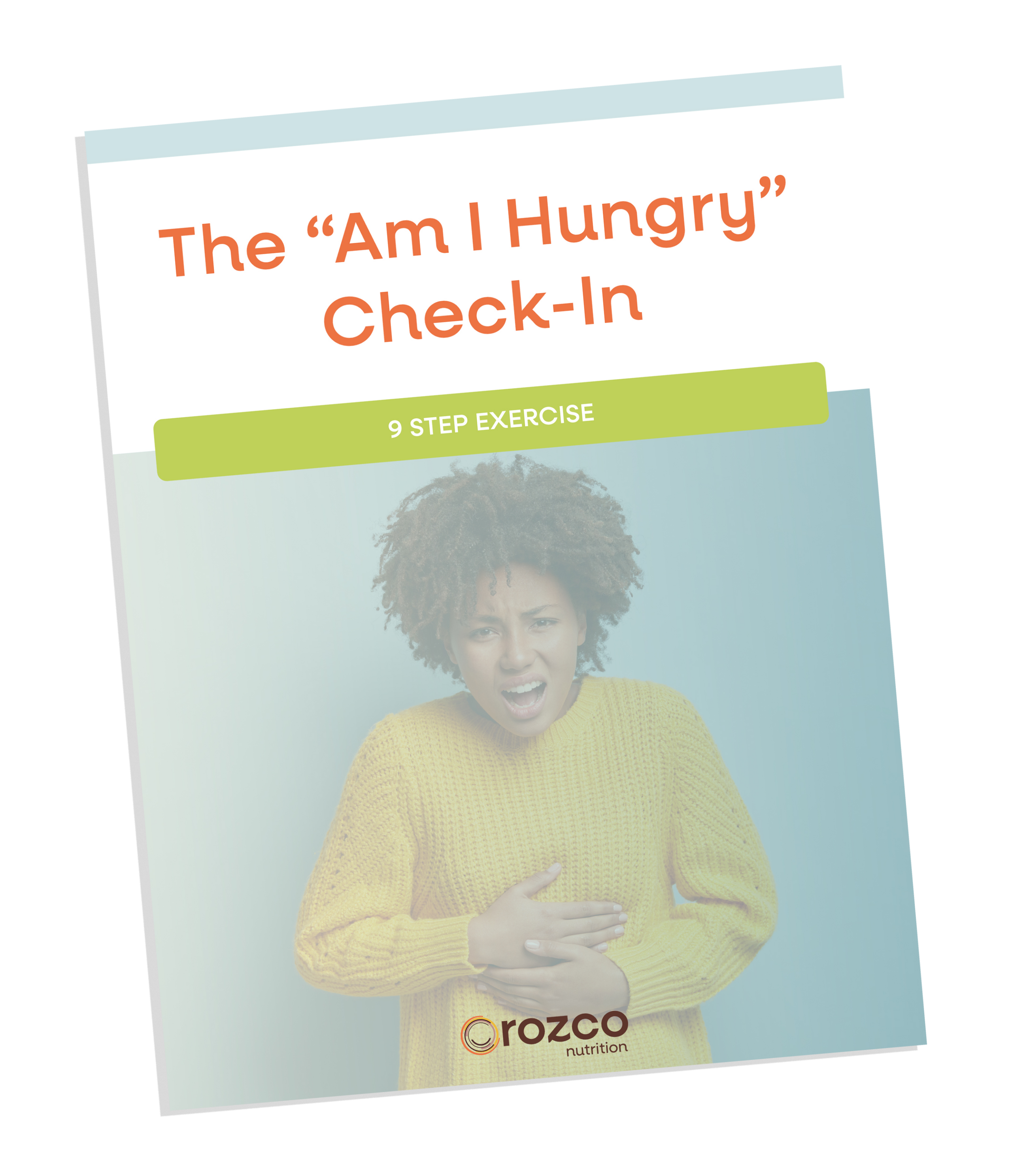Sleepy Time Nutrition

Is this how your day looks like? You hit that snooze button about five times, slowly stumble to make coffee, shower, race to get dressed, and then off to fight traffic. Then it’s endless emails, meetings, deadlines, demanding bosses, or errands that just don’t let up. Maybe you grab a bite to eat or skip meals all together or maybe you graze most of the day. You rely on coffee, diet soda, or some other stimulant to help you get through the day. Toward the end of the day you order take-out, get home, pore a glass or two of wine, get some house work done, scarf down your food (that wine and food sure seem soothing now). You might eat in from of the TV, checking emails or the latest on social media. You then try to get about 6 hours of not-so-restful sleep, getting up to go to the bathroom, dealing with heartburn, or just a restless night. You don’t feel rested the next morning and have to do it all again the next day.
What we may not notice is that this routine leads to a routine of consuming most of the calories toward the end of the day, as well as the dependence on stimulants and suppressants. At the beginning of the day we use coffee instead of food for energy, and then alcohol and/or large meals and snacks at the end of the day to helps us wind down. The problem is that this routine could have the potential to cause the body to store more fat over time and reduce the body’s ability to manage stress or health. Research shows that larger meals and snacks at the end of the day increases blood sugar levels, disrupts hormones like melatonin, insulin, orexin, and cortisol (1). These fluctuations and imbalances can disrupt the way the body stores or burns fat, how we sleep, and energy levels throughout the day. In other words, when we consume most of our calories at the end of the day our sleep could be affected as well as how we manage our weight, and possibly our health. Larger meals and snacks at the end of the day can also affect other organs during sleep like the liver, kidneys, heart, and intestines, which regulate various body functions (1). Jakubowicz and colleagues found that people who ate larger meals at the end of the day had delayed melatonin release, and therefore greater challenges with sleep and/or quality of sleep (2). Another group of researchers lead by Van Cauter discovered that people who consumed most of their calories towards the end of the day saw disruptions in the body’s circadian rhythm (3). This leads to more challenges in getting a restful night sleep. So what does one do to fix this?
One way is to Invert the Funnel! Eat more balanced throughout the day and change how we eat instead of what we eat. Starting out with a balanced breakfast is golden, however, getting there is not easy. I work with clients to first become aware of eating patterns. One of the biggest complaints I get from clients is that they don’t want to give up their caffeinated drinks. I tell them not to, but to use food more in line with the body’s needs and wants. Pay attention to the nuances of hunger and fullness, and what that means in relationship to the body’s needs. I work with clients to become aware of how much and how often they rely on quick easy fixes so they can learn that in the long-term quick and easy are not enduring or helpful for well-being. There’s no magic bullet in this process, it’s not a diet, and I don’t ask clients to give up any food, coffee or wine. It’s about awareness. It’s about small changes over time that makes a big difference. Come join me on the journey to enhance your relationship with eating!
- Bo S, Fadda M, Castiglione A, Ciccone G, De Francesco A, Fedele D, Guggino A, Parasiliti Caprino M, Ferrara S, Vezio Boggio M, Mengozzi G, Ghigo E, M Maccario, Broglio F; “Is the timing of caloric intake associated with variation in diet-induced thermogenesis and in the metabolic pattern? A randomized cross-over study”; International Journal of Obesity(29 July 2015) | doi:10.1038/ijo.2015.138
- Jakubowicz D, Barnea M, Wainstein J, Froy O.: “High caloric intake at breakfast vs. dinner differentially influences weight loss of overweight and obese women.” Obesity Society (2013 Dec;21(12):2504-12.) doi: 10.1002/oby.20460. Epub 2013 Jul 2.
- Van Cauter E, Polonsky KS, Scheen AJ; “Roles of Circadian Rhythmicity and Sleep in Human: Glucose Regulation”; Endocrine Reviews 18(5): 716–738

Hi, I am David Orozco
For over a decade, I've built a successful nutrition practice helping thousands of people thrive by breaking the cycle of crazy diets.
Everything I do—in my blog, in my book, and at Orozco Nutrition—is about helping people take one small bite at a time to transform their health and develop a positive relationship to food.
Are you with me? Let's chop the diet mentality, fuel your body, and nourish your soul.

Learn How
to Explore
Your “Hunger”
With the help of this free download, you can begin to learn to better understand your hunger, fullness and find your satisfaction with food.
Let’s Get Started
Whatever your unique situation, we look forward to working with you to set realistic goals, develop a workable action plan, and help you ALIMENTAR and FEEL GOOD.
Schedule a free, no-obligation 15-minute call now.

